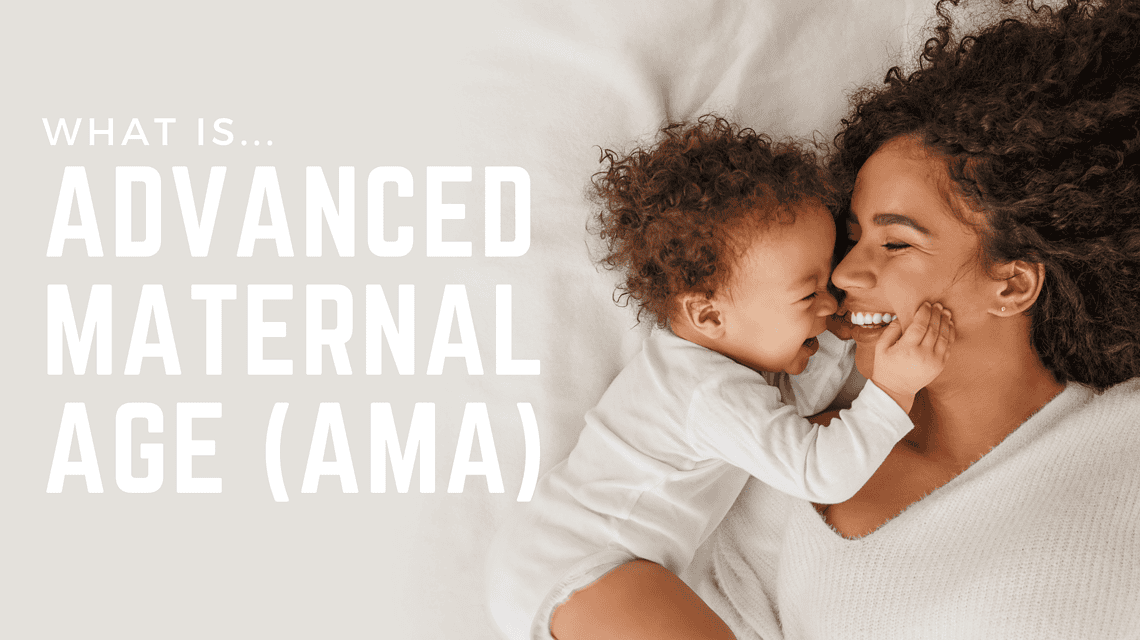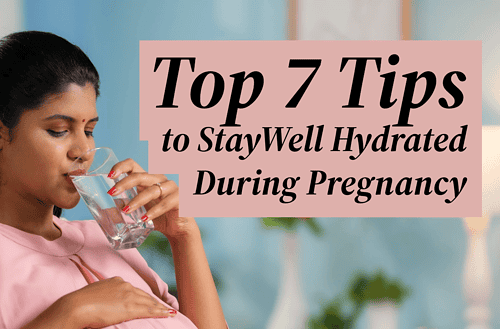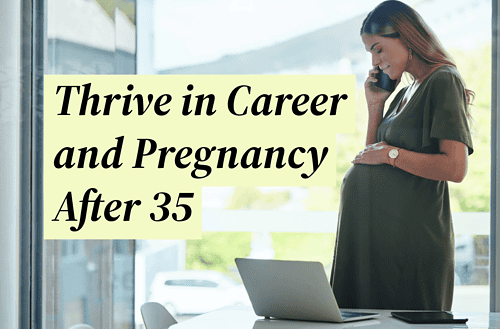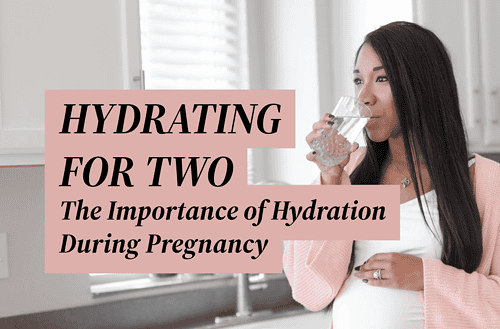Advanced Maternal Age (AMA) is a medical term referring to women who are 35 years old or older at the time of delivery. Once upon a time, these pregnancies were called “geriatric” pregnancies. Way to make a gal feel great! Thankfully, the medical profession has abandoned this outdated term for a more palatable one. Why give 35+ moms a unique designation? There are specific medical risks and complications associated with pregnancies occurring over age 35, and thus, a categorization allows focused prenatal, labor, and delivery care to ensure healthy outcomes for both mom and baby.
Women of this age group are associated with an increased risk of certain complications and genetic conditions. Even if you are in fantastic physical and mental health, if you are 35 or older, your doctors will plan your prenatal care differently than they would for a woman in her 20s.
Medical Risks Associated with Advanced Maternal Age Pregnancies
- Higher Risk of Chromosomal Abnormalities: Down syndrome and other chromosomal abnormalities increase with maternal age.
- Higher Incidence of Pregnancy Complications: Women of advanced maternal age are more likely to experience complications such as gestational diabetes, preeclampsia, and hypertension.
- Fertility Issues: Fertility tends to decline with age, making it more challenging to conceive.
- Higher Likelihood of Miscarriage: The risk of miscarriage increases as women age.
- Labor and Delivery Complications: Preterm birth, low birth weight babies, and cesarean deliveries are not uncommon in women of advanced maternal age.
Women of this age group need appropriate prenatal care to monitor and manage potential risks effectively. Thanks to advances in modern medicine, genetic testing, and prenatal care, many women aged 35 and older have healthy pregnancies and deliver perfectly healthy babies.
Despite the increased medical risks, many women opt to wait to have babies until they have achieved specific life and career goals. Being an older mom does have some benefits worth highlighting. AMA mommas have more life experience, maturity, and stability, giving them an advantage in the coming months of pregnancy and parenthood years. In fact, there is a growing trend in the USA and other developed countries of women waiting until later in life to elect to have children.
Centers for Disease Control and Prevention (CDC) data from 2020 demonstrate the continued upward trend in the mean age of pregnant individuals in the United States. Nearly 19% of all pregnancies and 11% of all first pregnancies in the United States were in women aged 35 years and older. The mean age of women having their first birth in 2020 was 27.1 years compared with 21.4 years in 1970.
-The American College of Obstetrics and Gyneolocy – Pregnancy at Age 35 Years or Older
Top 5 Unsung Benefits of an AMA Pregnancy
Emotional and Mental Preparedness: Older parents often feel more emotionally and mentally ready for the challenges of parenthood. They may have had more time to develop patience, resilience, and a strong sense of self.
Life Experience and Wisdom: Parents who have lived longer have more life experiences to draw upon when raising their children. They can impart valuable life lessons and a broader perspective to their kids.
Advances in Reproductive Medicine: Although fertility decreases as women age, older parents often have access to and can benefit from advancements in reproductive technology and prenatal care, which can help manage the risks associated with later pregnancies.
Focused Parenting: With age, many parents better understand what is essential in life, leading to more focused and mindful parenting. They have more perspective on their own childhood experience and can navigate current parenting trends to choose what is best for their family.
Stronger Relationships: Older parents often have more stable and mature relationships. Stronger relationships can provide a solid foundation for raising children and offer a more supportive and consistent home environment.
Pregnancy at any age is an adventure. Women should consult with their healthcare providers to effectively navigate the complexities of pregnancy and childbirth at an older age. For AMA moms, understanding the undeniable risks and the profound rewards of being an older mom should be empowering.




